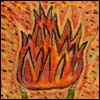The Torah tells us,1 “You shall observe My statutes and My ordinances, which a man shall do and live by them . . .” From this it was deduced that the mitzvot were given to live by, not to die by.
Thus, generally speaking, a Jew should transgress Torah law rather than be killed.
However, the Torah also tells us,2 “You shall not desecrate My holy name, and I shall be sanctified amidst the children of Israel . . .” The ultimate sanctification of G‑d’s name is achieved when one is loyal to His commandments, to the extent of willingness to die rather than transgress them.3
These two verses are reconciled as follows: Generally speaking, human life takes precedence over any commandment. One is obligated to violate any Torah precept in order to save a life. This is true even if there is only a remote chance that this act will save a life, and even if this act will not save a life, but only momentarily lengthen the life of a terminally ill individual.
However, there is also an obligation to sanctify G‑d’s name even if it means relinquishing one’s life. This mitzvah applies under the following circumstances:
Sha’at Hashemad (A Time of Religious Persecution)
If an oppressive government arises and sets for itself the goal of eradicating Judaism and Torah, we are commanded to sacrifice our lives rather than deviate one iota from Jewish law or custom. The example given in the Talmud4 is: if the prevailing Jewish custom is to wear white shoelaces, and the non-Jewish custom is to wear red shoelaces, then one must give up his life rather than change the color of the shoelaces he wears!
In this instance, it is irrelevant whether the transgression will be performed in public or private.
Three Cardinal Sins
With regard to the three cardinal sins—idolatry,5 murder and sexual sins (such as adultery, incest and homosexuality)6—we are obligated to allow our lives to be sacrificed rather than transgress them. Regarding these sins, it makes no difference who is the one (or ones) compelling the Jew to transgress, or in the presence of how many people it is done.
In Public
With regard to all other commandments, we are required to transgress rather than die. If, however, it is the intention of the person forcing the transgression to compel the person to sin, and the sin would be done in the presence of a minyan (ten Jews), then one is obligated to be martyred rather than transgress any sin.
Thus, for example, in the case of Nazi concentration camps, the Jewish prisoners were allowed to work on Shabbat—although it was done in public—because the Nazis weren’t out to get them to sin; they simply wanted them to work so they could benefit from their labor.
I would like to conclude with the words of Maimonides:7
“A person who encounters a situation concerning which it is stated ‘be killed rather than transgress,’ and he allowed himself to be killed and did not transgress—this individual has sanctified G‑d’s name. If this was in the presence of ten Jews, then he has sanctified G‑d’s name in public, like Hananiah, Mishael and Azariah, and like Rabbi Akiba and his colleagues. These are the ones referred to [in the Talmud] as ‘executed by the regime’; there is no higher level than their level. Concerning them it is stated,8 ‘For it is for Your sake that we are killed all day, that we are considered as sheep for the slaughter.’ And concerning these individuals it is said,9 ‘Gather to Me My devoted ones, who made a covenant with Me over a sacrifice.’”
I pray that these words remain purely academic. Despite the incredible greatness of the mitzvah of sanctifying G‑d’s name, we’ve “overused” this mitzvah through the course of countless crusades, inquisitions, pogroms and attempted Final Solutions (click here to read one story of communal martyrdom). Now it is time for us to sanctify G‑d’s holy name by the way we live, rather than by the way we die.
Rabbi Naftali Silberberg,
Chabad.org Editorial Team







Join the Discussion